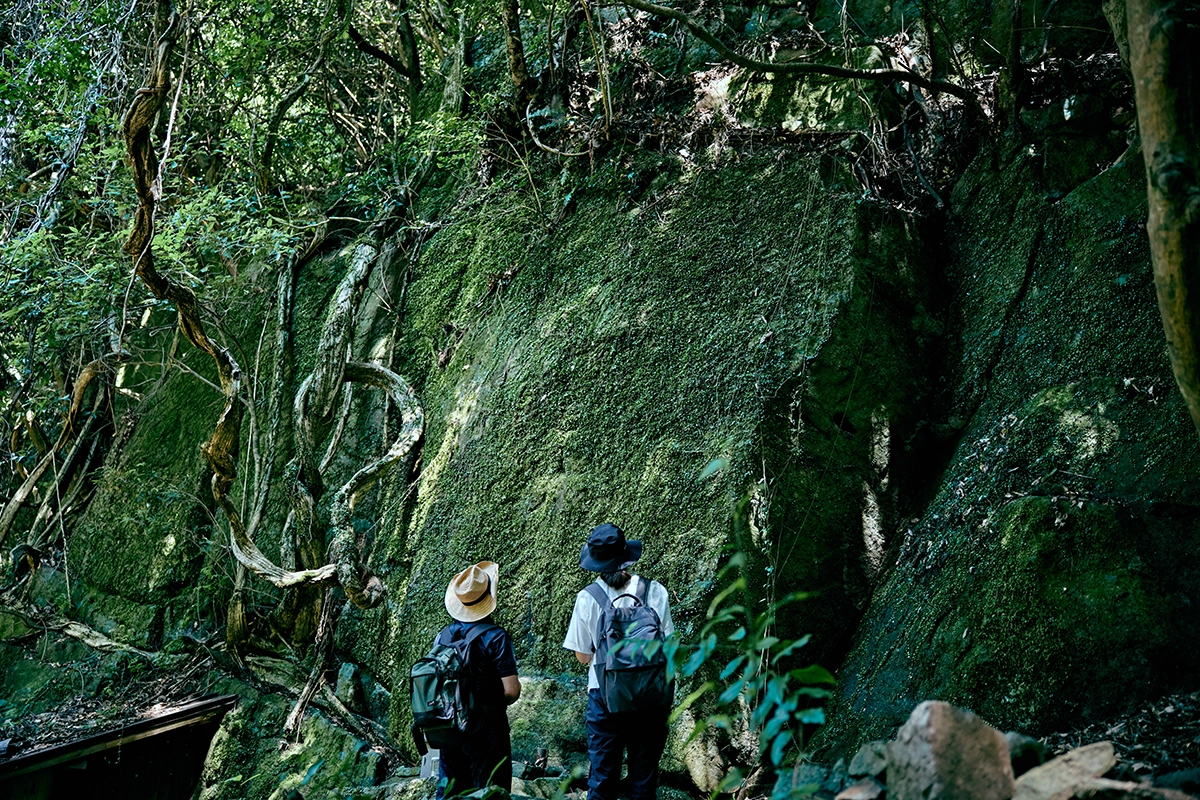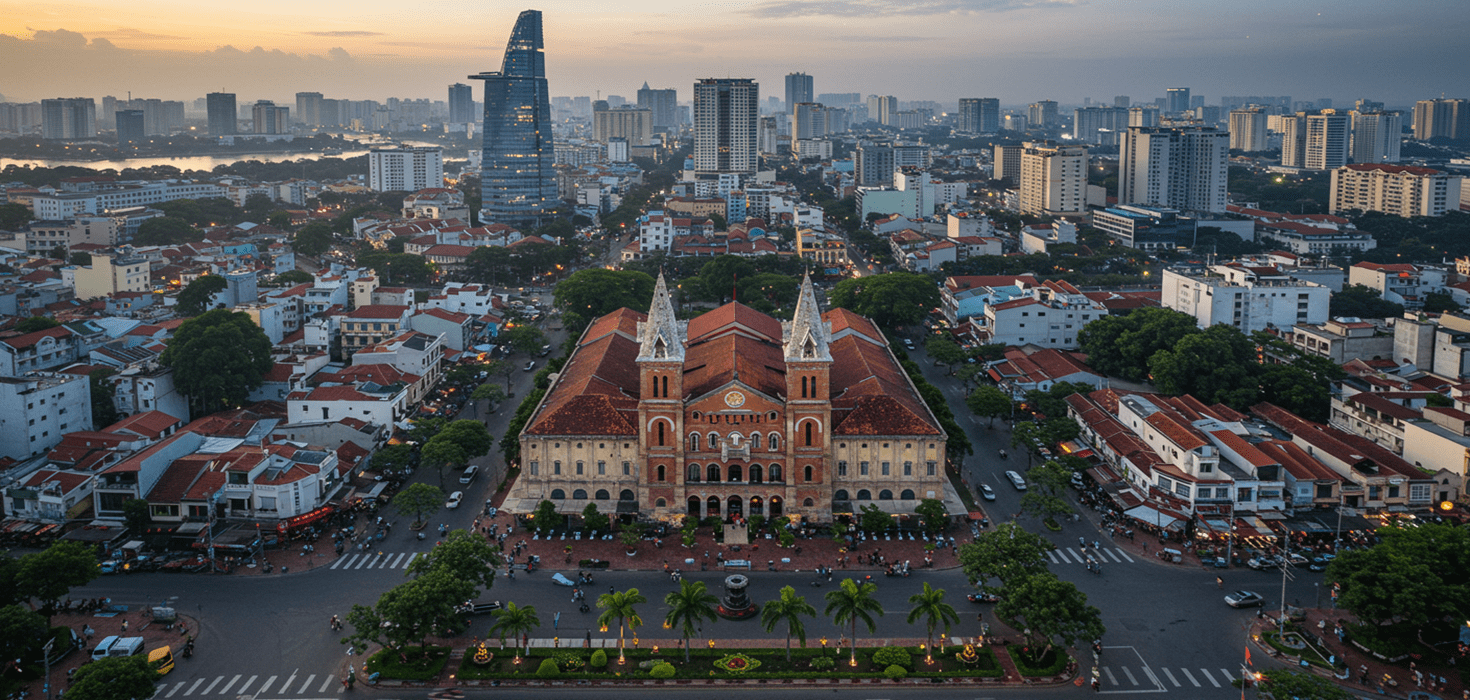Nagasaki is often remembered for the tragic role it played in World War II, and while those events certainly helped shape the city, they don’t define it – or the region that surrounds it. Things to do in Nagasaki go way beyond Nagasaki city limits! The perfect four-day trip through Nagasaki includes a tour of Nagasaki Atomic Bomb Museum and Peace Park, sure, but it also features ferry rides to nearby islands, a fun evening at Huis Ten Bosch and a relaxing day at Unzen Hot Springs.

Things to Do in Nagasaki | Day 1 – Pick an Island, Any Island!
It just makes sense to see Nagasaki’s top attractions first. Visiting the Atomic Bomb Museum and Peace Park in one morning is totally doable, and once Nagasaki’s historical landmarks have been explored, it will be time to pick an island! Nagasaki is home to several scenic islands, including Iki Island, loved for its hot springs, fresh seafood and Dolphin Park, and the Goto Islands, a group of five islands known for the historical role they played in Christianity as well as beaches and rare Japanese cuisine. Both islands can be reached by ferry or plane, but with Iki Island in the north and Goto City to the west, travelers will need to decide which island suits them best for the first day in Kyushu.
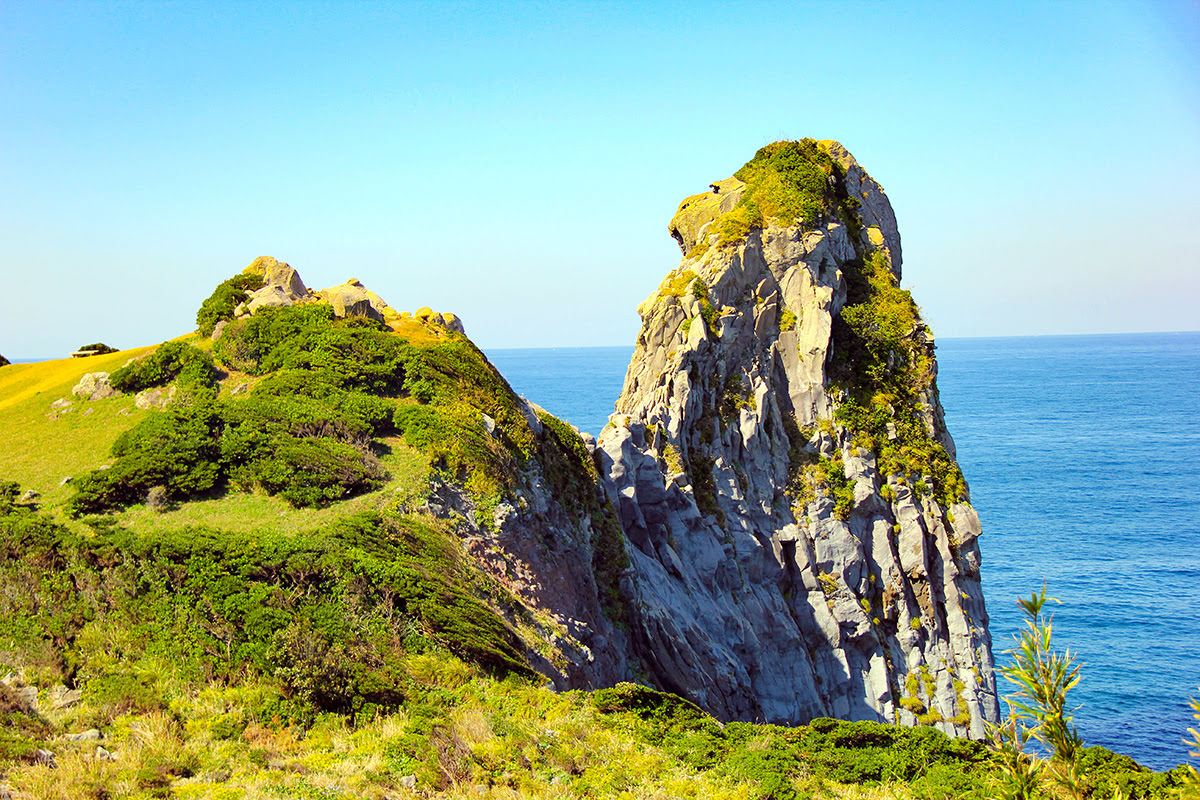
Iki Island
Located north of Kyushu (actually closer to Fukuoka and Saga than Nagasaki), Iki Island is a great escape for guests looking for rolling forests, sandy beaches and soothing onsens. Suited for adventurists, the island is small enough to bike around, but tourists wanting to drive can rent a car or motor scooter to get to places faster. Iki Island is home to more than 150 shrines, Dolphin Park and Yunomoto Hot Spring, as well as dozens of other attractions. Visitors can see some of the most popular places on Iki Island in one afternoon, and spending the night allows tourists to pack some sightseeing into the next morning before heading back to Nagasaki.
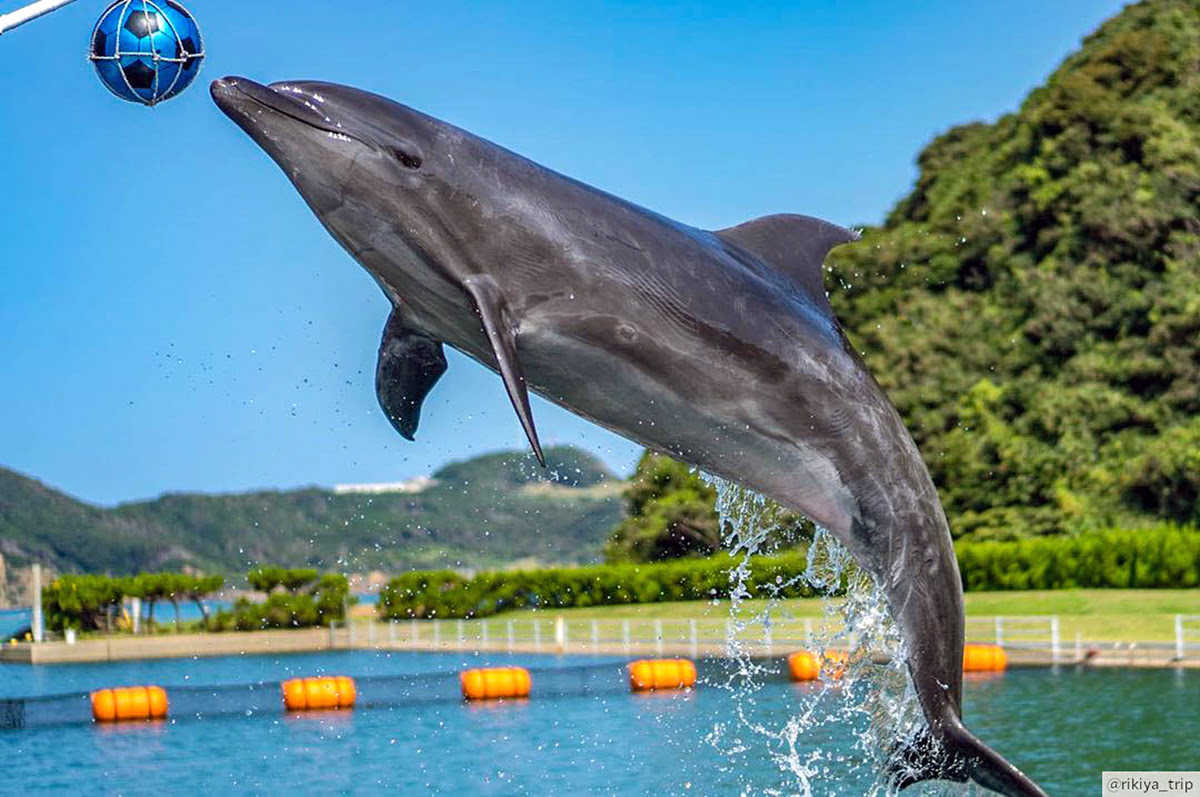
Top Things to Do on Iki Island
Tsutsukihama Beach & Nishikihama Beach Resort: noted as one of the most beautiful beaches in Japan, Tsutsukihama Beach is a 600-meter stretch of white sands located in Ishida on the southeast side of the island. Nishikihama Beach Resort is just a 5-minute walk away and offers clean, white sands with a little more privacy.
Monkey Rock (Saruiwa): on the western tip of Iki Island, visitors will find Monkey Rock, a quirky cliffside attraction that includes a stunning view of the sea.
Harahoge Jizo: these six statues located on the edge of the sea on the east side of Iki Island are regarded for their life-saving spirit. The statues, or jizo, are believed to liberate all life forms from pain and suffering. Locals care for the statues by keeping their surroundings tidy and changing their clothing regularly.
Sakyobana: the area known as Sakyobana is located on the eastern side of the island and is admired for its cliffside views from Sakyobanaryujin Shrine.
Sai Shrine: just north of Harahoge Jizo and Sakyobana, visitors can explore Sai Shrine, a small, traditional shrine on Kuyoshi Beach.
Takanotsuji: the highest point (212 meters) on Iki Island offers panoramic views of the local community and the natural wonders that surround it. Takanotsuji can be found in Ikitsushimakokutei Park, in the south-central region of the island.
Dolphin Park: visitors can explore the northern tip of the island while visiting Dolphin Park, where dolphins are treated to the good life in an open atmosphere that encourages hands-on bonding and healing.
Makizaki Park: on the southwest side of the island, Makizaki Park is a fun spot to see nature’s imprints. Famous sites in the area include the Demon (Devil’s) Footprint and Laughing Gorilla Rock.
Eat Iki food: dining on Iki Island is a culinary delight. Sample locally-raised Iki beef, hand-harvested sea urchin, freshly-caught lobster and unique dishes made with squid.
Yunomoto Hot Spring: one of the main reasons visitors travel to Iki Island is to visit Yunomoto Hot Spring. With 17 spring sources and a variety of comfortable ryokans, the area is the perfect place to end the evening on Iki Island.
Getting to Iki Island
Travelers wanting to make the most of their time can fly to Iki Island from Fukuoka in just 30 minutes. However, ferry services offer scenic journeys for a fraction of the cost. The closest ports to Nagasaki are Port of Hakata in Fukuoka and Karatsu Port in Saga. Ferries leave regularly throughout the day, and travel time is about 2 and half hours. Jet Foil offers speedboat service from Hakata, which delivers passengers in about one hour.
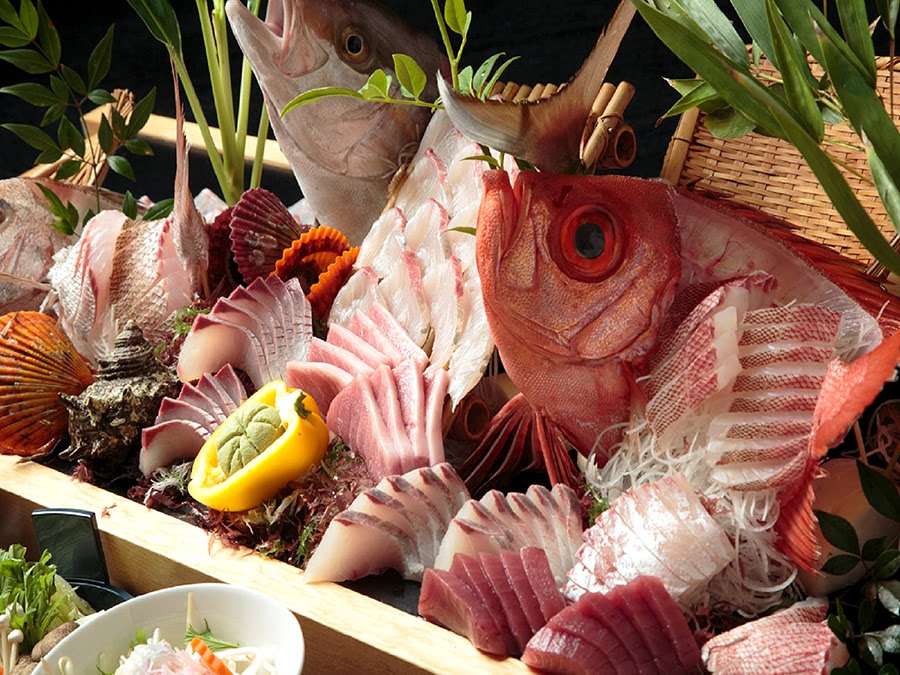
FIND & BOOK A HOTEL IN IKI TODAY
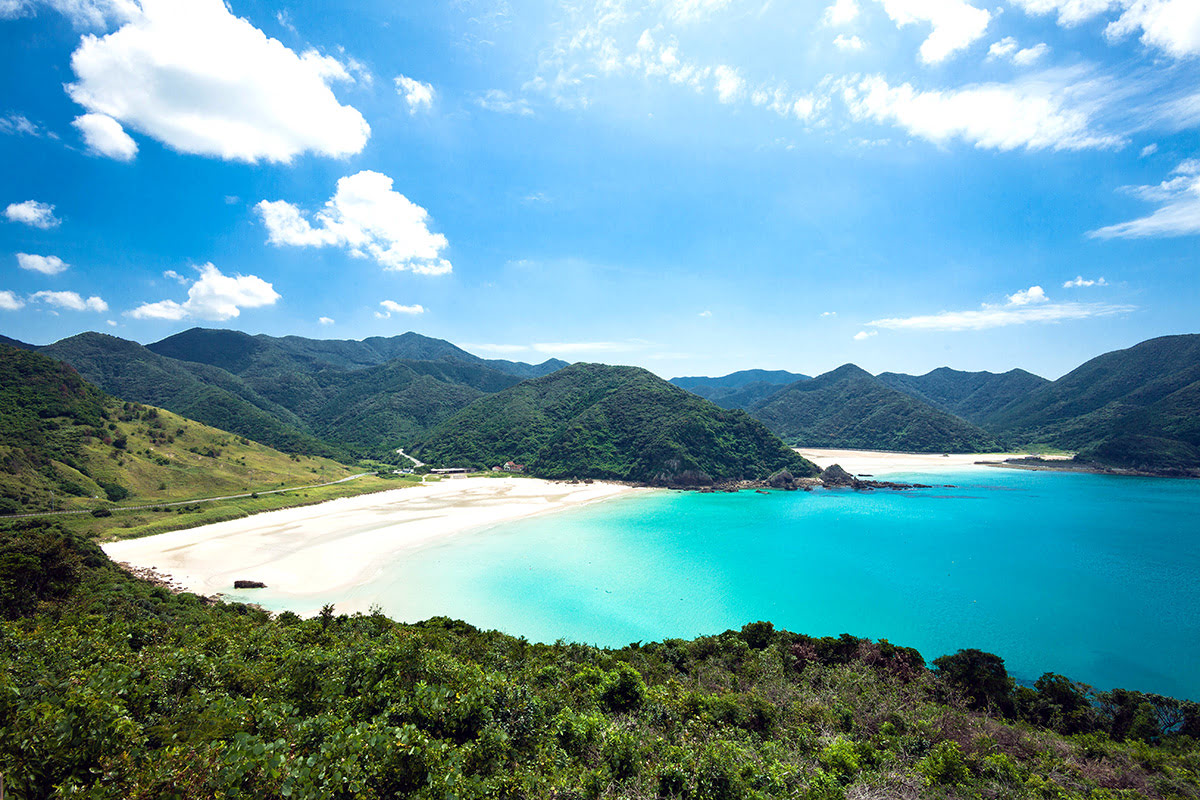
Goto Islands & Goto City
Just a short ferry ride west of Nagasaki lies the Goto Islands, a floating oasis made of five islands, all rich in natural attractions and historic landmarks. The largest island is Fukue, and it is accompanied by Hisaka, Naru, Wakamatsu and Nakadori. Even though biggest doesn’t always mean best, in this case it might because Fukue Island is one of the best places to spend a day in Nagasaki Prefecture. Guests who arrive in the afternoon can head straight to Takahama Beach, where cool sands and a fresh seafood meal await. The area is a great place to spend the night and prepare for morning explorations of Mt. Onidake, Fukue Castle Ruins and the Goto Tourist and History Museum. Dozaki Church also is worth touring, as it is one of 50 area churches that serve as historical sites and reminders of why Fukue Island was once a safe haven for persecuted Christians.
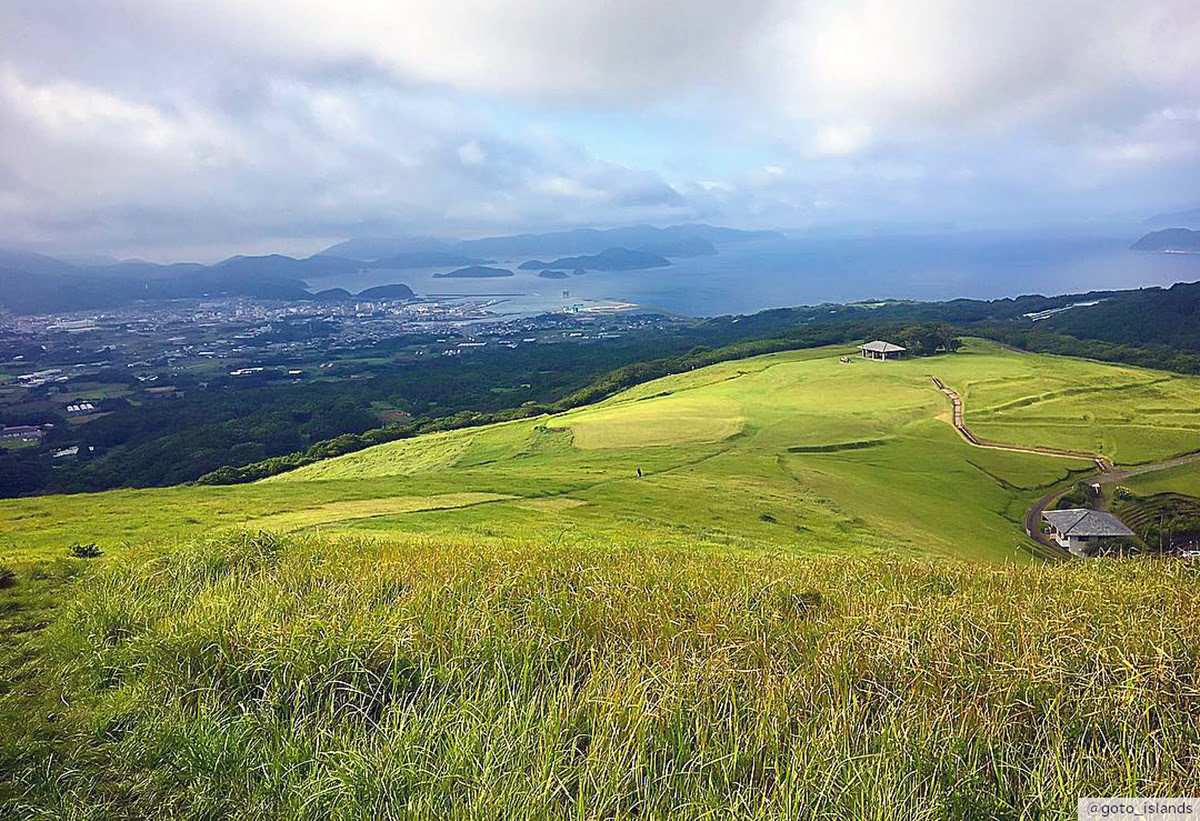
Fukue Island and Goto City attractions
Takahama Beach: sometimes referred to as the most beautiful beach in Japan, Takahama Beach is a blue-water paradise on the west side of Fukue Island. The area is popular for water sports and adventure activities, but it also is appreciated for its serene atmosphere and peacefulness.
Mt. Onidake: just a few minutes’ drive outside Goto, Mt. Onidake is a rolling hillside shaped by a dormant volcano. Hiking trails are well marked, and the trek up the 315-meter-tall mountain is pretty simple. The open mountainside is a popular spot for flying kites and photography.
Fukue Castle Ruins & Goto Tourist and History Museum: also called Ishida Castle, Fukue Castle Ruins is the only sea castle in Japan that has three sides facing the sea. Visitors can view the remains of the castle, which is said to be the newest castle in the country since it was built between 1863 and 1849. The Goto Tourist and History Museum is next to the castle ruins.
Dozaki Church (Tenshudo): a nod to Christianity, which was once forbidden in all of Japan, Dozaki Church is the oldest church in the Goto Islands. The church was turned into a museum several years ago and now displays artifacts and reminders of the “Hidden Christians” who escaped suppression by relocating to the Gotos and other islands around Kyushu.
How to get to Fukue Island and Goto City
The Goto Islands are easily accessible from Nagasaki, either by plane or ferry. A plane ride from Nagasaki Airport takes about 30 to 45 minutes. Alternatively, two ferries leave regularly from Nagasakiminato Terminal: the Jet Foil speed boat trip takes about an hour and a half, and the Kyushu Shosen Ferry ride takes about three and a half hours.
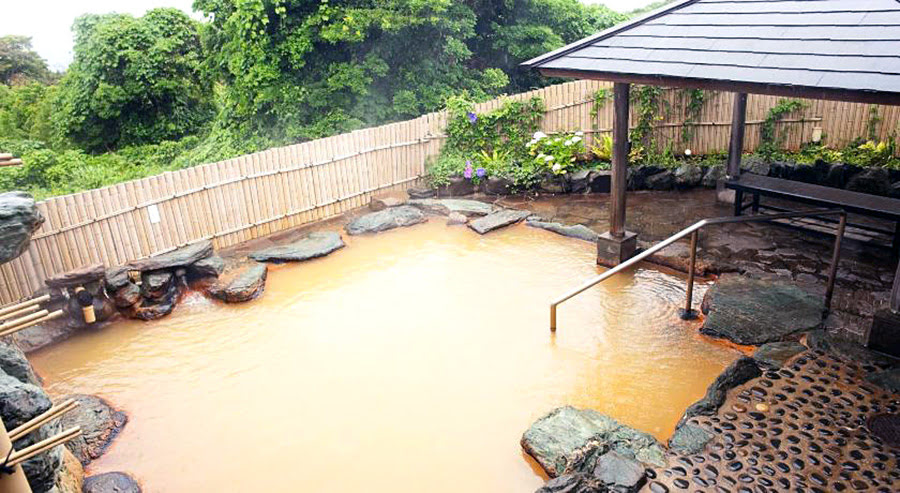
FIND & BOOK A HOTEL IN GOTO TODAY
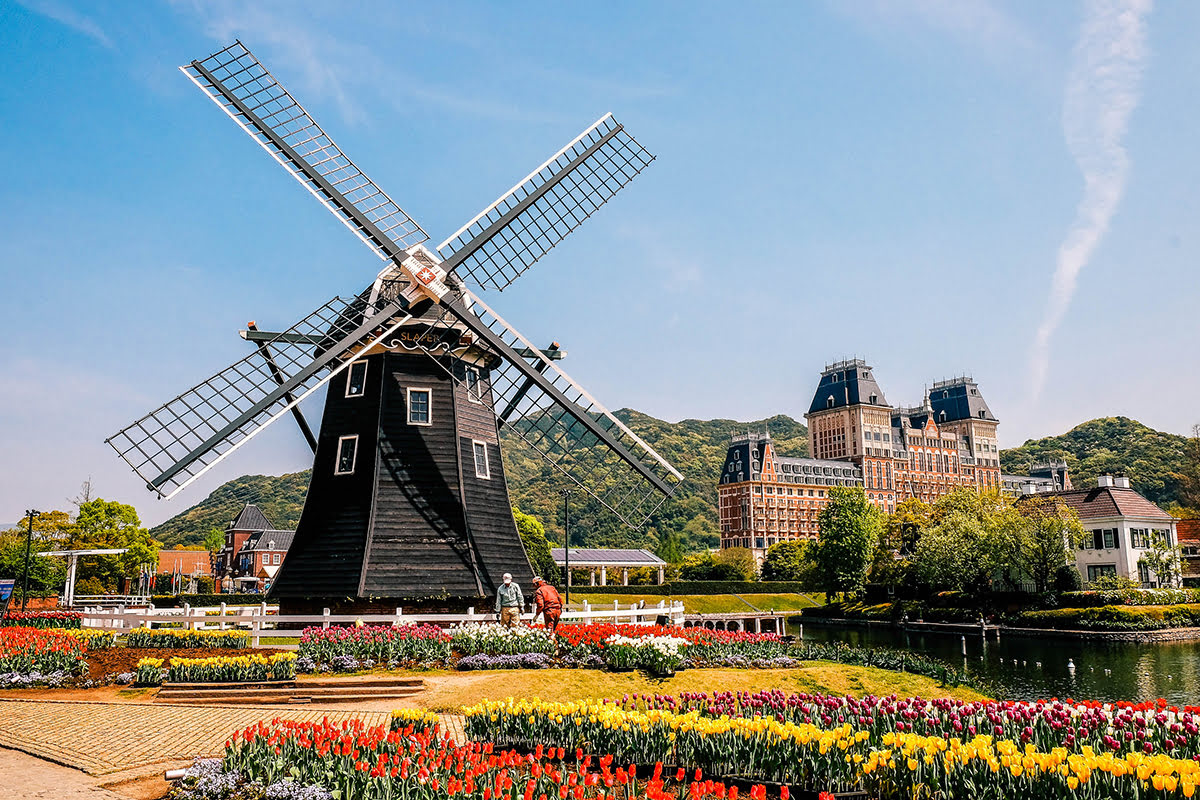
Things to Do in Nagasaki | Day 2 – Go Dutch at Huis Ten Bosch
After a packed first day of exploring Nagasaki’s most significant cultural and historic sites, visitors should plan a more laid-back itinerary for their second day in the city. A trip to the wildly unique Huis Ten Bosch is the perfect plan.
Explore the Dutch Influence at Huis Ten Bosch
Huis Ten Bosch is a one-of-a-kind theme park that is often referred to as “Little Europe.” The amusement park pays homage to the Dutch influence, which has been central to Nagasaki‘s identity since the early 1600s. Located in the northern section of Nagasaki Prefecture on Hario Island, the park is a replica of a traditional Dutch village, complete with canals, windmills, and tulips.
In addition to the European elements, Huis Ten Bosch boasts dazzling light shows and a variety of uniquely-Japanese attractions. There is a robot-tended bar, a haunted house, a mirror maze, and virtual reality takes on everything from roller coasters to fishing holes. The Theme Park Zone of the park also boasts a 3D theater and a Ferris wheel.
Huis Ten Bosch is open from 9am to 10pm most days, but hours may vary by season. There are a variety of ticket levels available, and guests can choose to purchase an all-inclusive ticket or pay separately for individual attractions. A 7,000-yen ticket provides entry to the park and unlimited access to most attractions.
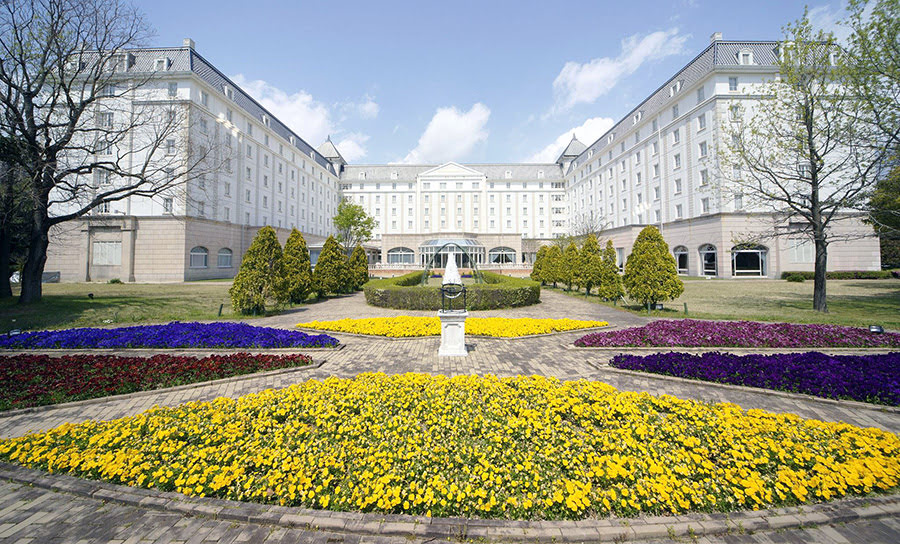
FIND & BOOK A HOTEL IN NAGASAKI PREFECTURE TODAY
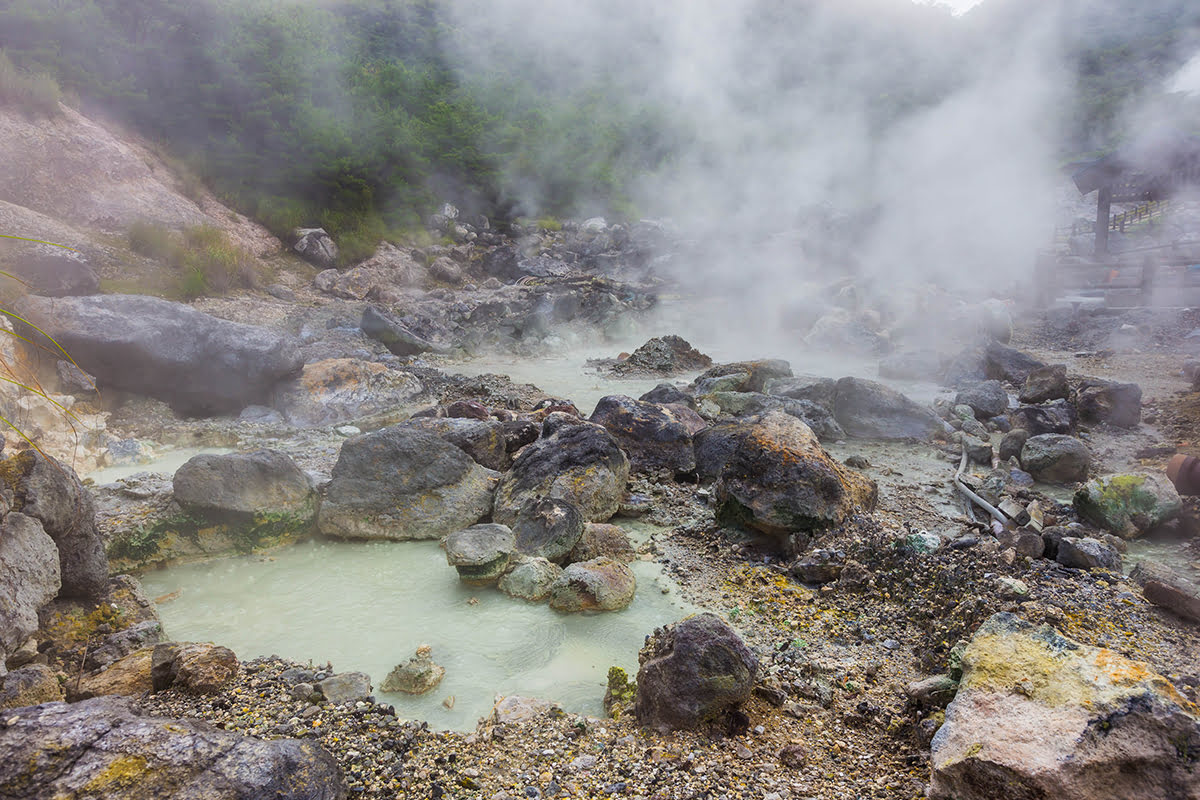
Things to Do in Nagasaki | Day 3 – Slip into a Heated Hot Spring in Unzen
Visitors who are ready to escape the city for a day or two will find that Unzen is an ideal destination. Less than two hours by bus or train from Nagasaki, Unzen is a hot springs resort town on the Shimabara Peninsula. Unzen is nestled inside Unzen-Amakusa National Park, Japan’s first national park, and there are plenty of hiking options for those who want to work up a sweat before soaking tired muscles in the sulfuric waters of the hot springs.
Unwind in the Unzen Hot Springs
While the area is rich in natural beauty, the region is most known for the hot springs, which reveal themselves through the clouds of steam that rise from cracks in the rocky terrain. Water in the underground springs can reach 98°C, and one of the most unique tourist activities is dining on a boiled egg that has been cooked in the steam created by the water that is close to boiling below ground. When visitors are ready to slip into the healing spring waters, they will find a wide array of private ryokans (Japanese inns) with onsens as well as public baths.
Travelers who want to expand their exploration beyond the hot springs of Shimabara Peninsula should consider a visit to Shimabara Castle Ruins. The historic landmark is popular for its impressive moats and massive stone walls.
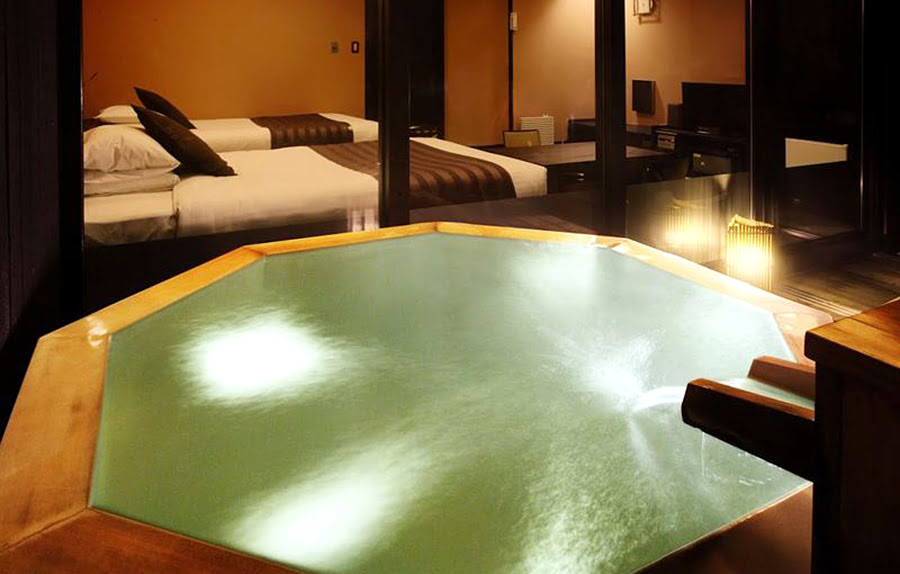
FIND & BOOK A HOTEL IN NAGASAKI PREFECTURE TODAY
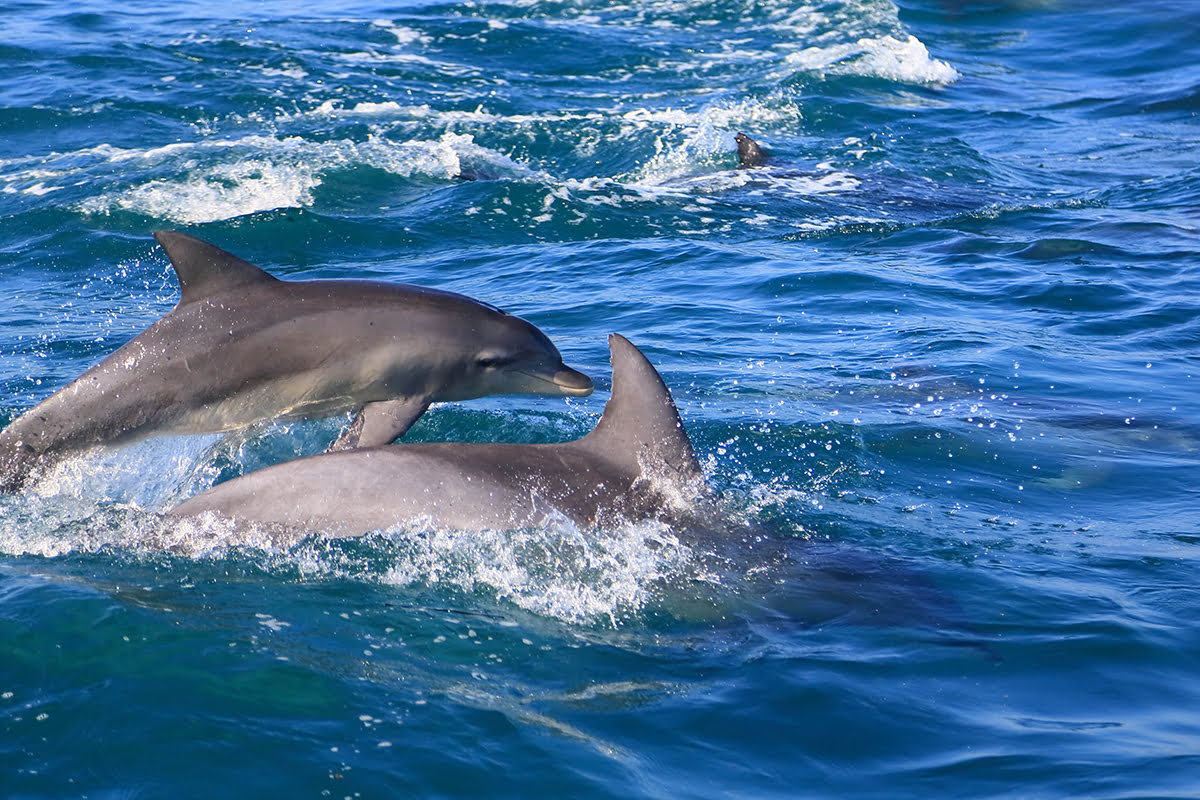
Things to Do in Nagasaki | Day 4 – Discover the Island Hideaway of Hidden Christians
On the final day of finding things to do in Nagasaki, visitors should get an early start in order to catch a ferry to Amakusa, a series of islands off the west coast of Kyushu. Today, bridges connect the three largest islands (Shimoshima, Ueshima and Oyano) to each other and to the city of Kumamoto in Kyushu. Centuries ago, this was not the case, and the isolation provided by these remote islands was sought out by Christians seeking to practice their banned religion during the Edo Period. That legacy is apparent throughout Amakusa. There are a significant number of churches scattered across the islands as well as several museums that highlight the history of the “Hidden Christians.”
Explore the Amakusa Islands
The most well known church in Amakusa is Oe Catholic Church. Visitors who want to learn more about the history of Christianity in the region should plan a visit to Shiro Amakusa Memorial Hall, a museum housing multiple exhibits that demonstrate the impact that Christianity had on Japanese history.
Beyond its historical significance, Amakusa is also prized for its natural beauty. Visitors to the islands delight in catching sight of the wild dolphins that frolic in the waters just off the coast. Both dolphin watching tours and glass bottom boat tours are popular things to do in Amakusa as are all manner of beach activities. The islands are dotted with fishing villages, and excellent seafood can be found just about everywhere. Sea urchin is a particularly popular local specialty.
Visitors can reach Amakusa by plane or bus, but most travelers prefer to catch a ferry since it is the most scenic option. Once in Amakusa, visitors should consider renting a car since buses have very limited schedules.
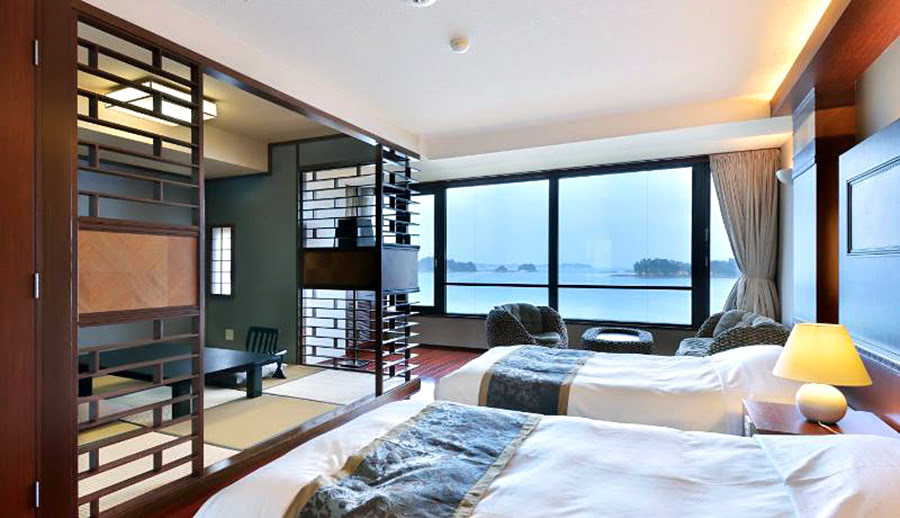
FIND & BOOK A HOTEL IN NAGASAKI PREFECTURE TODAY
[contact-form to=”travelguides@agoda.com” subject=”Travel guide survey results”][contact-field label=”Was this travel guide helpful?” type=”checkbox-multiple” =”1″ options=”Yes,No”][/contact-form]

